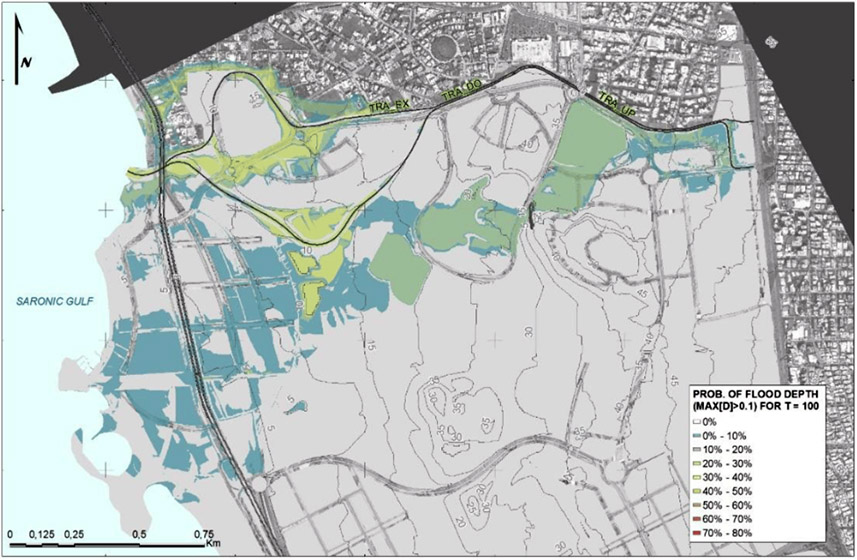Authors: Efstratiadis A., Dimas P., Pouliasis G., Tsoukalas I., Kossieris P., Bellos V., Sakki G.K., Makropoulos C. and Michas S
Journal: Water
Issue / Pages: Vol 14, Issue 3
Publisher: MDPI
Publication Date: 2018
Title: Revisiting flood hazard assessment practices under a hybrid stochastic simulation
ABSTRACT
We propose a novel probabilistic approach to flood hazard assessment, aiming to address the major shortcomings of everyday deterministic engineering practices in a computationally efficient manner. In this context, the principal sources of uncertainty are defined across the overall modeling procedure, namely, the statistical uncertainty of inferring annual rainfall maxima through distribution models that are fitted to empirical data, and the inherently stochastic nature of the underlying hydrometeorological and hydrodynamic processes.
Our work focuses on three key facets, i.e., the temporal profile of storm events, the dependence of flood generation mechanisms on antecedent soil moisture conditions, and the dependence of runoff propagation over the terrain and the stream network on the intensity of the flood event.
These are addressed through the implementation of a series of cascade modules, based on publicly available and open-source software. Moreover, the hydrodynamic processes are simulated by a hybrid 1D/2D modeling approach, which offers a good compromise between computational efficiency and accuracy.
The proposed framework enables the estimation of the uncertainty of all flood-related quantities, by means of empirically derived quantiles for given return periods. Lastly, a set of easily applicable flood hazard metrics are introduced for the quantification of flood hazard.



